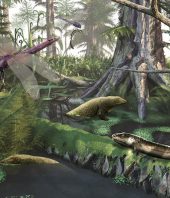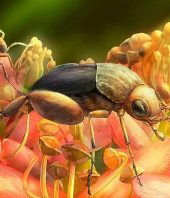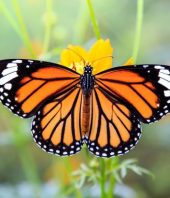What is the sixth mass extinction?
Many scientists think the current worldwide annihilation of wildlife is the beginning of a huge loss of species on Earth. It has happened five times in the last 4bn years, as a result of meteorite impacts, long ice ages and huge volcanic eruptions. But this one is the result not of natural causes, but of humanity’s actions.
How bad is it?
Extremely. By some measures, the biodiversity crisis is even deeper than that of climate change. Since the dawn of civilisation, humanity has caused the loss of 83% of all wild mammals. In the last 50 years alone, the populations of all mammals, birds, reptiles and fish have fallen by an average of 60%.
How about insects?
The new global review says it’s even worse for bugs, with the proportion of insect species declining being double that for vertebrates. The insect decline is at least a century old, but seems to have accelerated in recent decades.
Does that matter?
Yes. There are more than a million species of insect, compared with just 5,400 mammals, and they are the cornerstone of all terrestrial ecosystems. Without them, you get what scientists call a “bottom-up trophic cascade”, in which the knock-on effects of the insect collapse surge up through the food chain, wiping out higher animals. And without healthy ecosystems, there is no clean air and water.
Why are we only really noticing the insect collapse now?
The lack of bugs on car windscreens after a drive in the country, compared with a few decades ago, is real. But hard scientific data requires careful and long-term research, and relatively little has been done. Insects are small and often hard to identify, and they are certainly much less charismatic than elephants or eagles. Worse, just when we need more information, researchers say entomology courses are being cut.
What can be done?
Ultimately the size of the human population and how much land it uses for the food, energy and other goods it consumes determine how much wildlife is lost. Protecting wild spaces is important, as is reducing the impact of industrial, chemical-based farming. Fighting climate change is also vital, particularly for the many insect species in the tropics. So demanding political action, eating fewer intensively farmed meat and dairy products, and flying less could all help.
Source: The Guardian, Full Article






